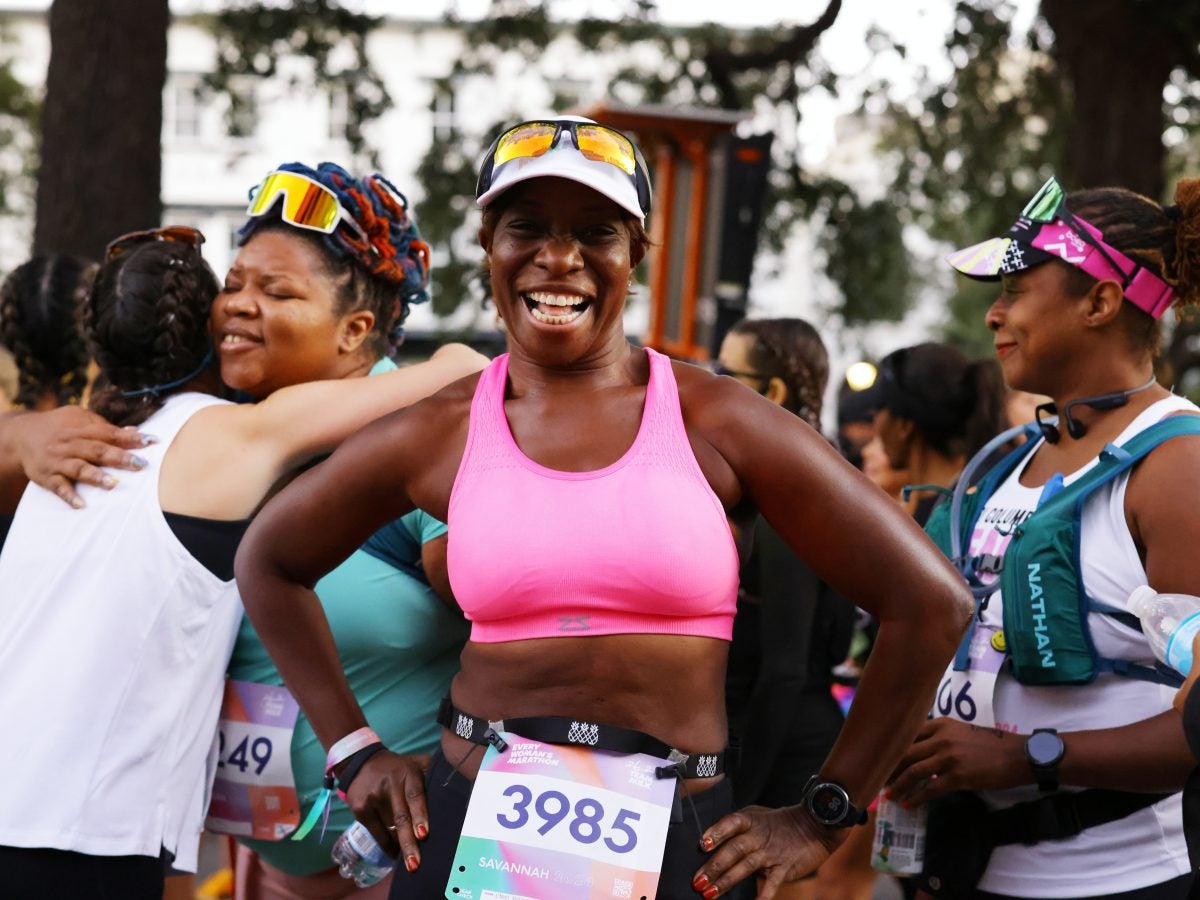
I have always had a complex relationship with running. The sport was never something that I claimed or was particularly fond of. My periods of being a “runner” would come in spurts; or in waves, if you will. I think it’s the pressure of being labeled a runner that got to me. After all, if an individual is regarded as one, then said person is expected to run consistently, for an arbitrary distance (that’s long enough to seem like a “runner”), and to prove their chops by signing up for a race or two every few years. Maybe even a couple of times within a year. In other words, runners have got to keep up—pardon the pun. That’s not me.
But, I am easily inspired.
If I feel the Spirit, then I will let it move me. And that was the case during the inaugural Every Woman’s Marathon (EWM), which took place on November 16. I let the energy and enthusiasm of over 7,000 women assume control over me, and I signed up for the 26.2-mile race in and around Savannah, Georgia.
Running has for decades excluded women and, by proxy, women of color. I was taken aback (in the best way possible) to see all of the Black runners, especially the members of Black Girls Run, out in large numbers. Ultimately, it was seeing the women—of various ages, sizes, races, and abilities—collect their bibs at the marathon’s expo and feeling their enthusiasm—which was somewhat euphoric—that prompted me to say, I can do this, too.
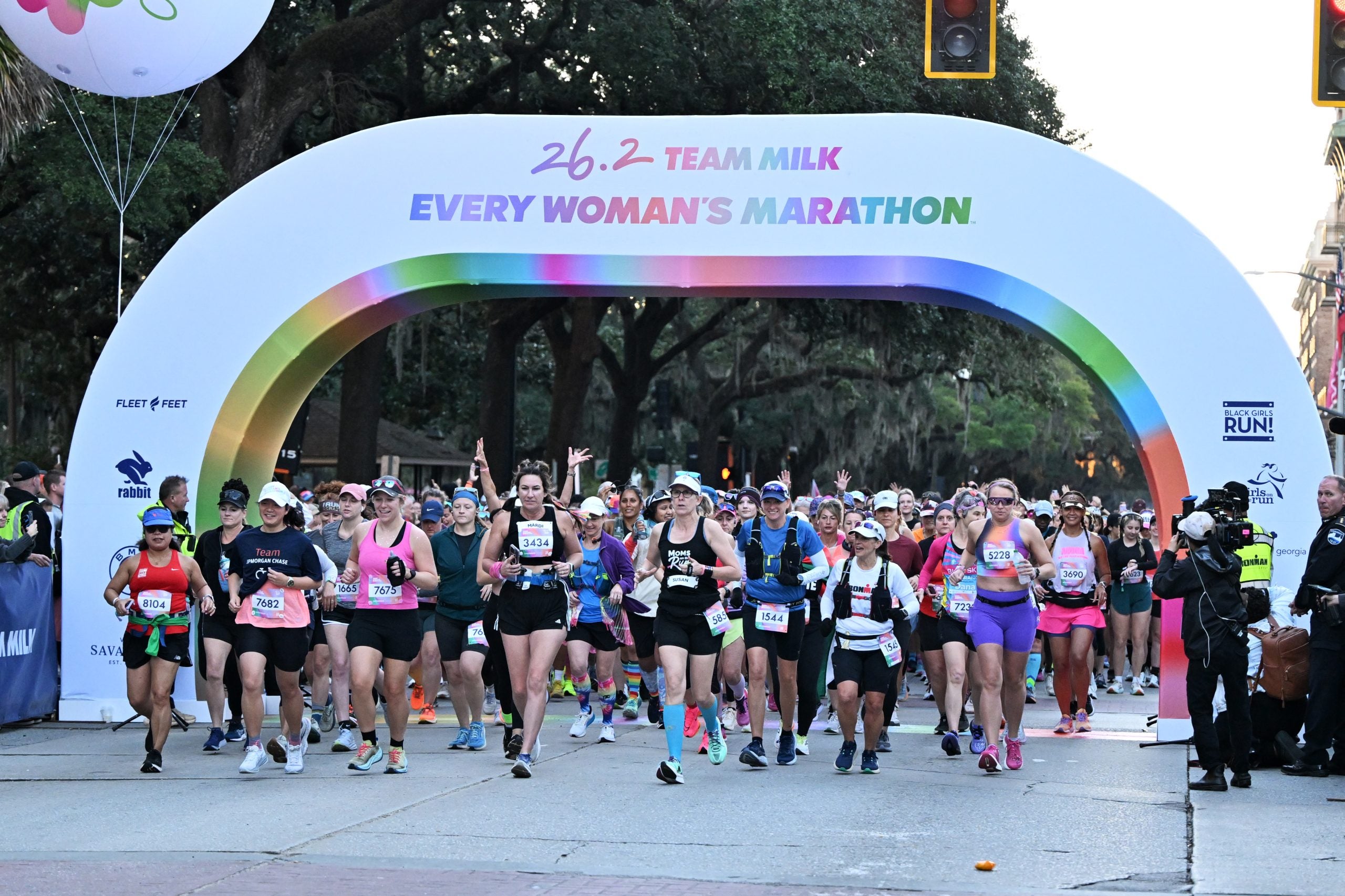
I registered for the marathon within 24 hours of EWM kicking off. This was perhaps the foolhardiest decision that I’ve made in my life thus far. How did I pull this off, you ask? My kind friends at Team Milk helped me to secure a bib and the exact running sneakers I needed; my job was to get across the finish line. But I was certain that things would get a little dicey along the way.
Here’s the thing: while I had run three marathons prior, I did not train sufficiently for EWM. This was extremely risky. I wasn’t following a marathon prep program, but I do work out most days (doing a combination of strength training and cycling). Another relevant point in this decision is that the race welcomes individuals at every stage of their running journey. For its first race, Every Woman’s Marathon hosted over 40% of race participants who were first-time marathon runners; it also included longer-than-average finish times (which allow for slower paces to participate successfully). Also, Savannah’s topography is fairly flat, with an overpass and an uphill highway, but by and large, the course isn’t too grueling. The race made its way through the city, including Taylor Square (which was named after Susie Baker King Taylor, who was the first African American nurse of the Civil War), Forsyth Park, and Savannah State University. While taking these various factors into account, I felt empowered and confident about my decision.
I know what 26.2 miles feels like on the body. And running is a mental sport—the moment that you decide not to give up is the point when you’ve already won. I told myself that in the worst-case scenario, I could powerwalk through the race course, but fortunately, my legs had the strength to run (then jog, and even shuffle when the fatigue set in), and they did not stop. Again, signing up for a marathon a day ahead of the race without proper training training is completely ill-advised, but I am proud to be an Every Woman’s Marathon finisher.
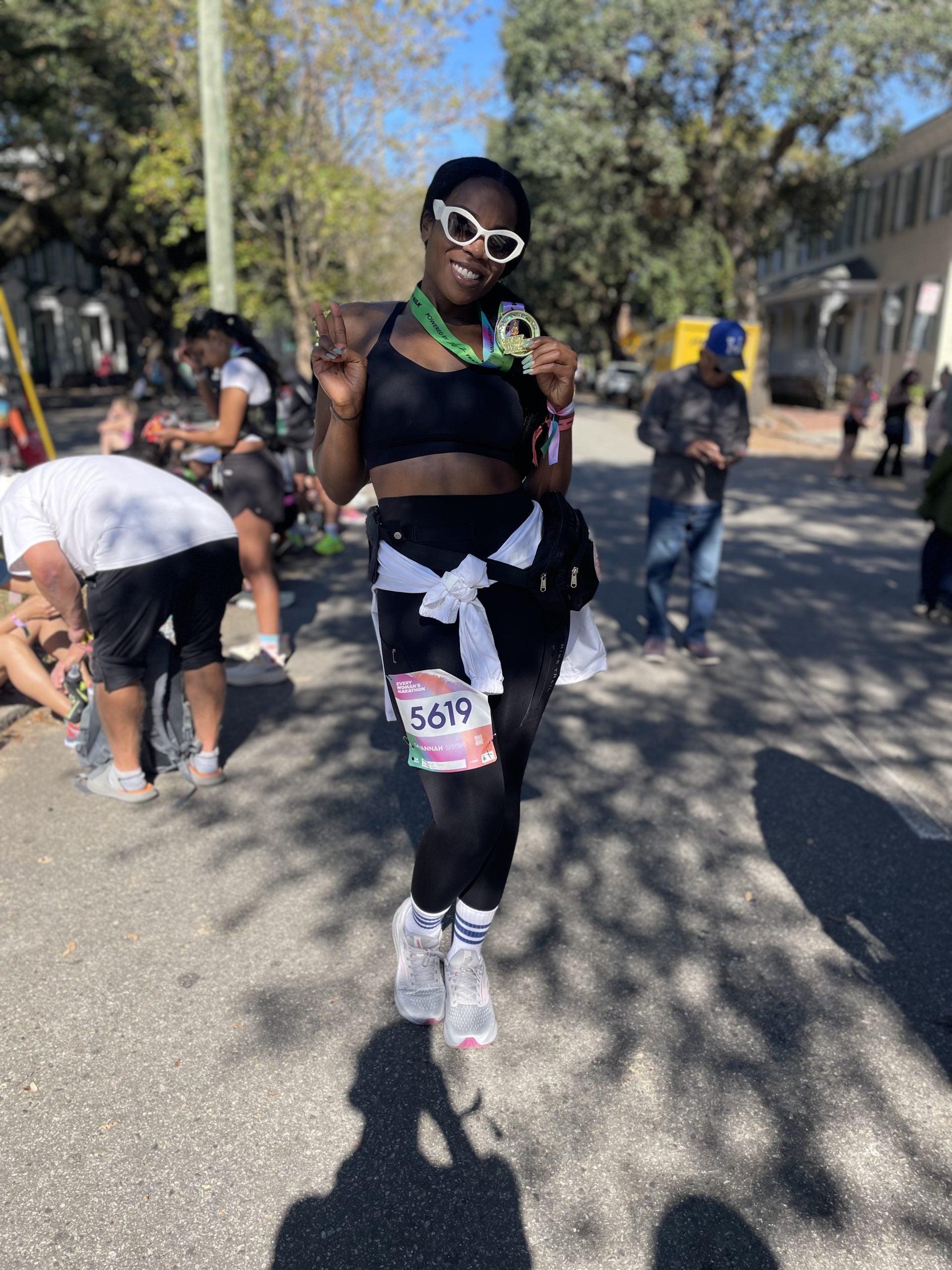
Running, for me, is a spiritual experience. On a deeper level, it is proof of the power within us all: the power of the soul. When the body is fatigued (and perhaps even numb), it is a spirit of determination that moves it forward. It is the dynamic willpower that carries me across the finish line. This is why I run. During race weekend, I chatted with a few participants to understand their why. What motivates them to start (and finish) a 26.2-mile race? While the energy and enthusiasm of EWM was palpable and motivational, what is their deeper connection to running?
Alison Mariella Désir, 39, Seattle, WA
Alison Mariella Désir is a distance-running queen, founder of Harlem Run and a rockstar of Every Woman’s Marathon, as one of the weekend’s five coaches. Désir, who has been in the long-distance running industry for over 10 years, knows first-hand how the space doesn’t center the needs and wants of female marathoners. “I feel like there’s a push-pull in the industry now where there are still the people who hold the power and the decision-making. The CEOs of brands, the people who make money from the industry, still remain largely white and male,” she says. By becoming an EWM coach, Désir’s hope is to build something that will raise the bar for what’s expected of races moving forward.
“My hope for the future of running is exactly what we saw happen in this race. We, as the captains and as the rest of the team, were intentional about who we were inviting to this space.” Désir continues, “We need to know that when we come into this space that we’re going to be welcomed. And that we’re going to feel like our experiences are valid.”
Désir has run races with distances as short as 5K (3.2 miles) to 50K (or 31.1 miles), and beyond. She ran the Every Woman’s Marathon but made the decision not to finish the race.
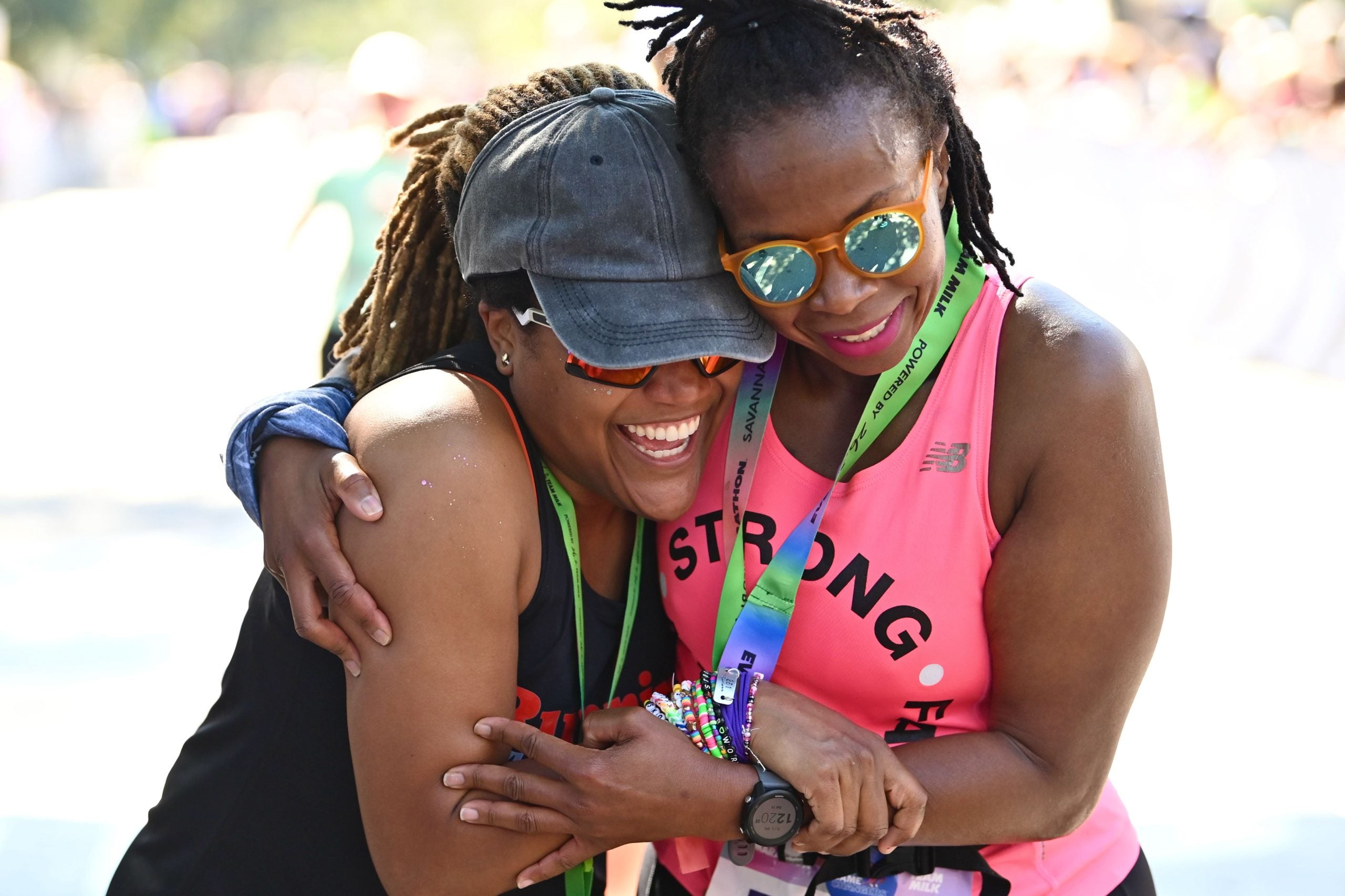
As the mother of a preschooler, her why as a runner has shifted. “Running before was very much a part of my mental health toolkit and also really about connecting me to the community. Since giving birth, mental health has been a big piece of it more than anything else because running is the opportunity that I get to be by myself. Alone with my thoughts.”
The activist says that running has helped her to affirm and accept her new body. “My body is very different than it was before. And initially, I was comparing myself to my old self,” she says. “Will I ever get back there? But as time has gone by, now, it’s been like, well, what can this body do?”
Joice Barnard, 67, Savannah, GA
Joice Barnard started running in high school at 15 years old. She ran her first marathon, the Marine Corps Marathon, in the 1990s. “I said that it would be my last marathon,” she quipped. “And here we are.”
Today, Barnard is 67 years old, and Every Woman’s Marathon will be her first marathon with a replacement hip (but her ninth overall).
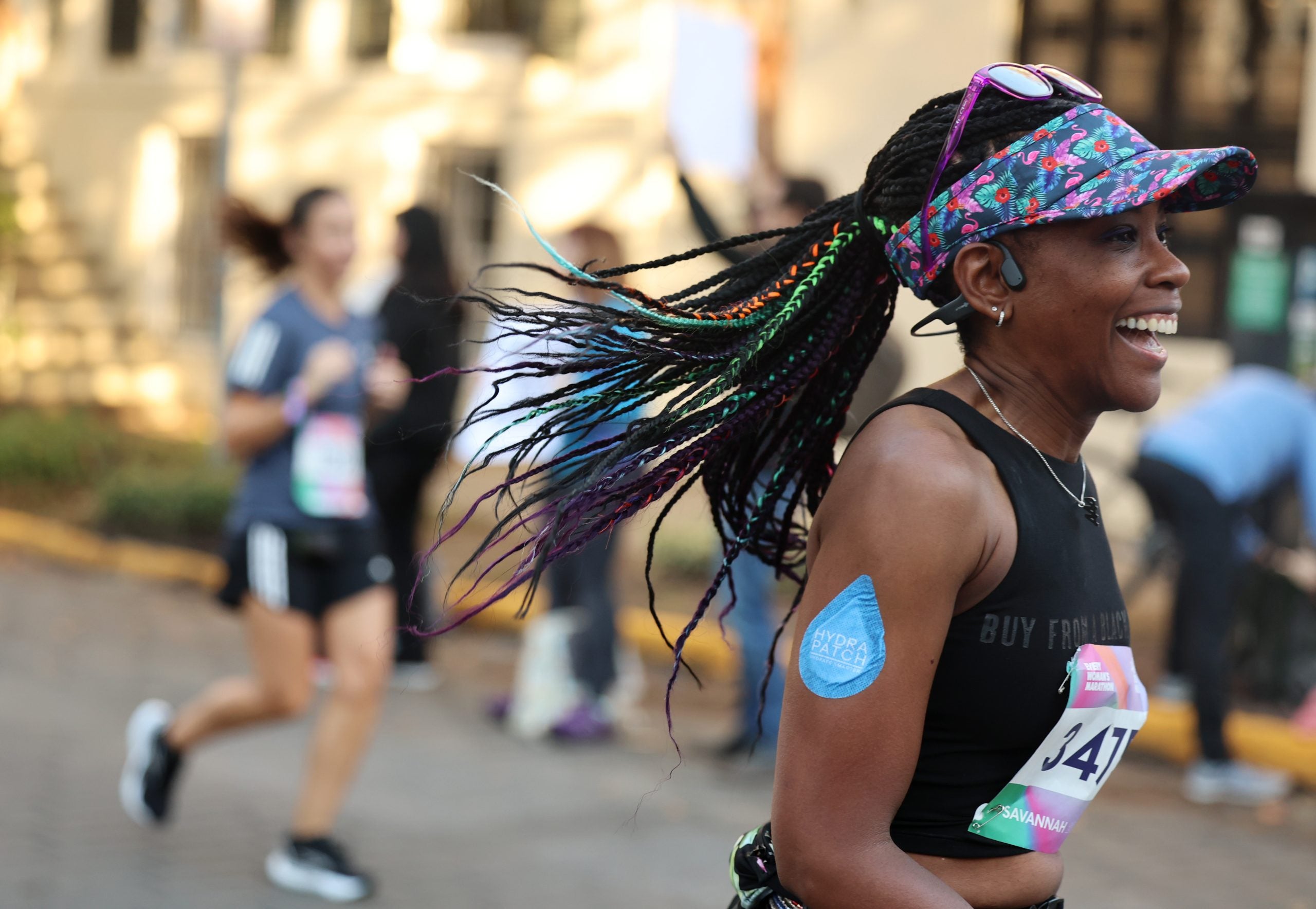
What keeps the sexagenarian going? Barnard says that running is very much a part of her existence. “I’ve been doing this for over 50 years, and I don’t have an answer to it,” she says. “It is just all I know. It’s like I breathe, I eat, I run.”
The North Carolina native has some advice for people who are older and looking to enter the world of running: “Be patient with yourself. It’s okay to take your time and have fun with it, and it’ll all build up. And I also like to say, you have to stay fit to stay fit.”
Demitra Carter, 25, Portland, OR
Demitra Carter is a former sprinter for Baylor University and a first-time marathoner. “A marathon isn’t something that you normally do,” the 25-year-old says. “I think it’s 1% of people in the world are running a marathon.” Carter was motivated by this statistic and was ready to be amongst that elite bunch.
“I’ve always loved running. I started running when I was a kid,” she says. She was drawn to running because it’s an accessible sport, something that everyone can do.
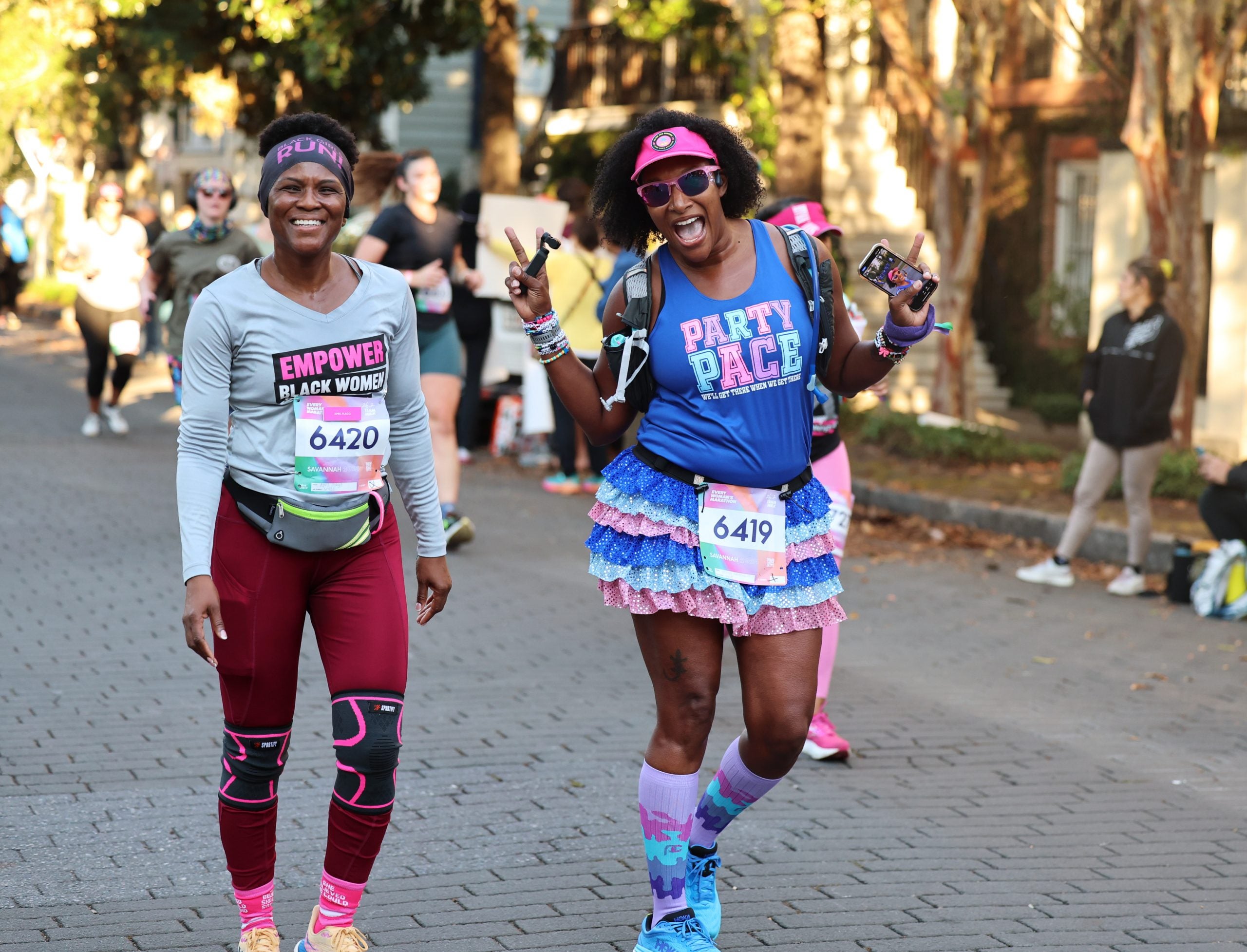
“I hated the idea of running track at first because why are we running in circles? But then I won and winning makes you want to keep doing something.”
Aside from the victories, she says that running, for her, is somewhat therapeutic. “Running fixes things, even if you don’t feel like running,” Carter notes. “Every time I finish, I always feel good about it, whether it’s hard to start or easy to start. But I always feel good after the fact.”
Kimberly Rodriguez, 36, Washington, DC
Kimberly Rodriguez launched Latinas Running in 2019. The community seeks to uplift all runners, especially Latinas, with an intention to promote diversity and body positivity. Rodriguez is a plus-sized runner. She emphasizes that no one in the group is left behind—it prioritizes community over pace.
“I would always just say I’m a jogger because I was at a 15-minute mile, 16-minute mile, and just five years ago, I completely let go of that. I’m like, I’m a runner,” Rodriguez says.
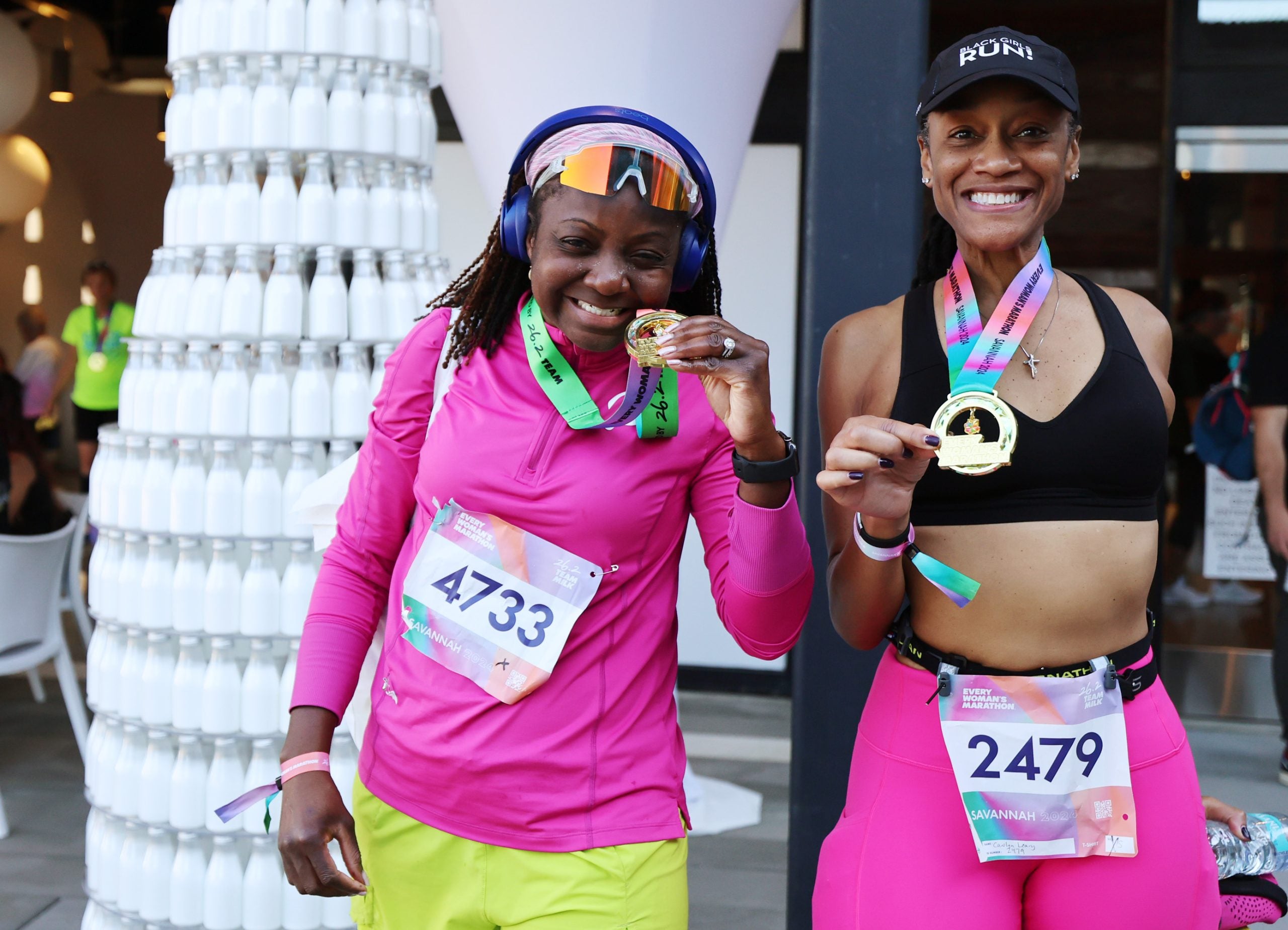
“I struggled a lot with self-doubt, and running has made me feel confident in so many ways. I met goals that seemed impossible.”
For the 36-year-old, running has also been a healing journey. She battled PCOS in 2012 and decided to sign up for a half marathon the following year. Running, along with a combination of other factors, saved her from needing surgery. “Running is really where I can quiet the noise, whether it’s struggles, setbacks, people projecting their fear,” Rodriguez says. “I became my best self.”
